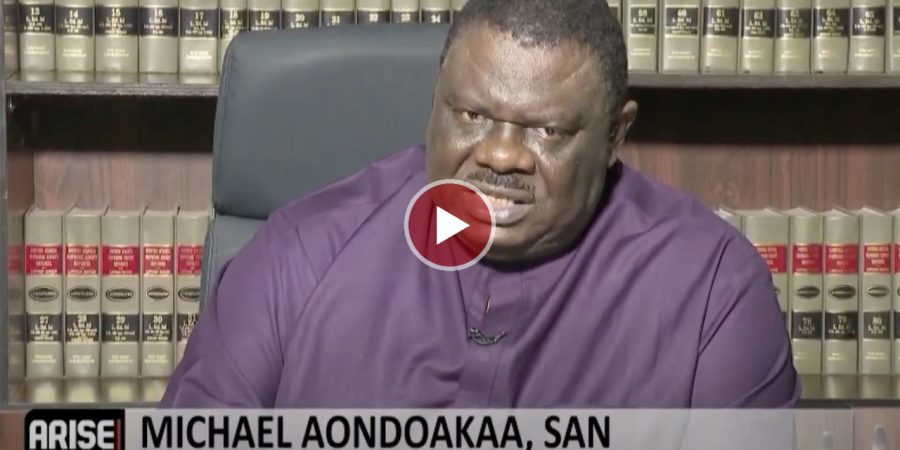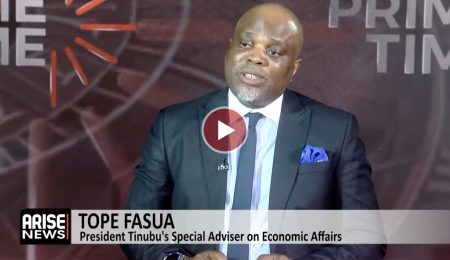Former Attorney General of the Federation and Minister of Justice, Michael Aondoakaa, SAN, has warned that a proposed bill seeking to assign permanent co-chairmanship to a particular traditional ruler within the National Council of Traditional Rulers could be legally unsound and politically divisive, urging lawmakers to revisit the approach.
Speaking with ARISE NEWS during an interview on Friday, Aondoakaa acknowledged the importance of traditional institutions in local governance and national stability, but questioned the bill’s structure and its potential to disrupt constitutional harmony and national unity. “There is value,” he said, referring to integrating traditional rulers into governance. “But how it is being proposed is the issue that we can contest… I don’t think it will meet the legal expectations.”
The former Attorney General emphasized that traditional matters fall under the residual legislative list, which means the National Assembly lacks the constitutional authority to legislate on them unless it is framed as a constitutional amendment. “If it’s just a private member’s bill, clearly it is an unconstitutional exercise. Because the federal government has no power to legislate on traditional issues,” he argued.
He further warned that even if the bill is reframed as a constitutional amendment, it would likely fail due to a lack of nationwide consensus.
“You already heard Edipo proposing that it’s about five states. In the south-south, I’m not sure whether you can get anything around the north-central region. You may also not get anything around even northeast.”
“Therefore, it may be a kind of wasteful exercise, waste of resources, waste of time,” he added.
Aondoakaa also cautioned against elevating one traditional institution above others in a multi-ethnic country like Nigeria, stressing that such a move could ignite rivalry and breed resentment among geopolitical zones.
“You don’t create a law where you know at the end of the day it will be defeated,” he said. “If you are introducing a pattern that does not fit into the other offices created, you will be creating a kind of legislation that will be assaulted with other provisions of the constitution.”
Despite these concerns, Aondoakaa acknowledged that traditional rulers remain highly respected at the grassroots and could play meaningful roles in national development and community policing if included correctly.
“They are like religious bodies, they don’t have any coercive powers, but when they speak, people obey,” he noted. “They are closer to the people, even more than our regular secretariat.”
However, he warned that Nigeria’s current political climate makes it difficult to keep traditional rulers neutral if they are constitutionally absorbed into governance structures.
“The situation here in Nigeria now is that everything is politicised… Even if you make an alteration, the law relating to their appointments is state law,” he said.
“The party that governs at that time has control over the appointment and removal,” he continued. “You can see what is happening in Kano.”
The constitutional lawyer concluded by calling for careful study and national consensus before enacting any reform involving traditional rulers, cautioning against a hasty or one-sided approach.
“The dangers are more glaring than the advantages,” he said. “It’s not something somebody just wakes up today and says I want to do an operation. It has to be studied very well.”
Oyaniyi Boluwatife
Follow us on:


